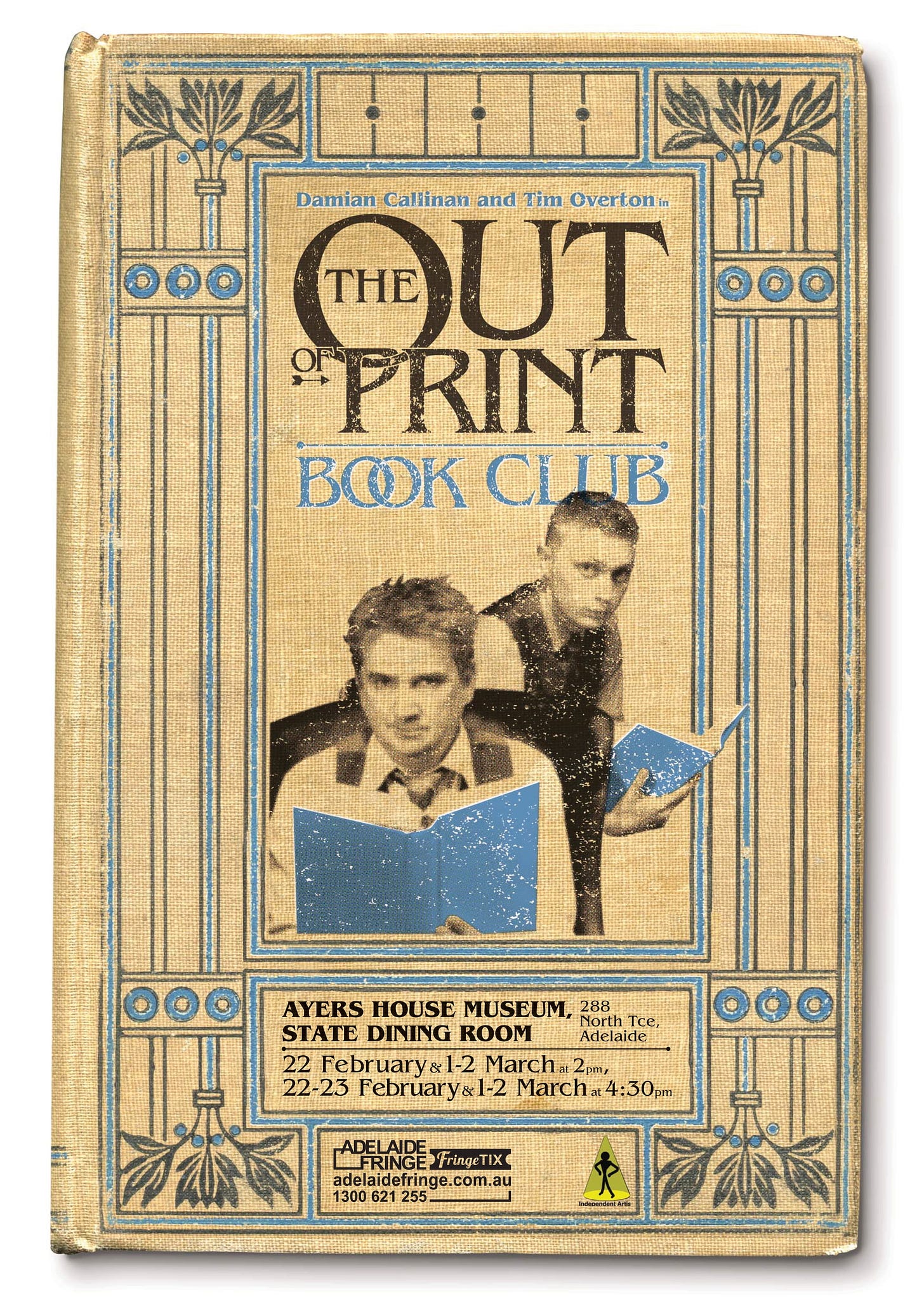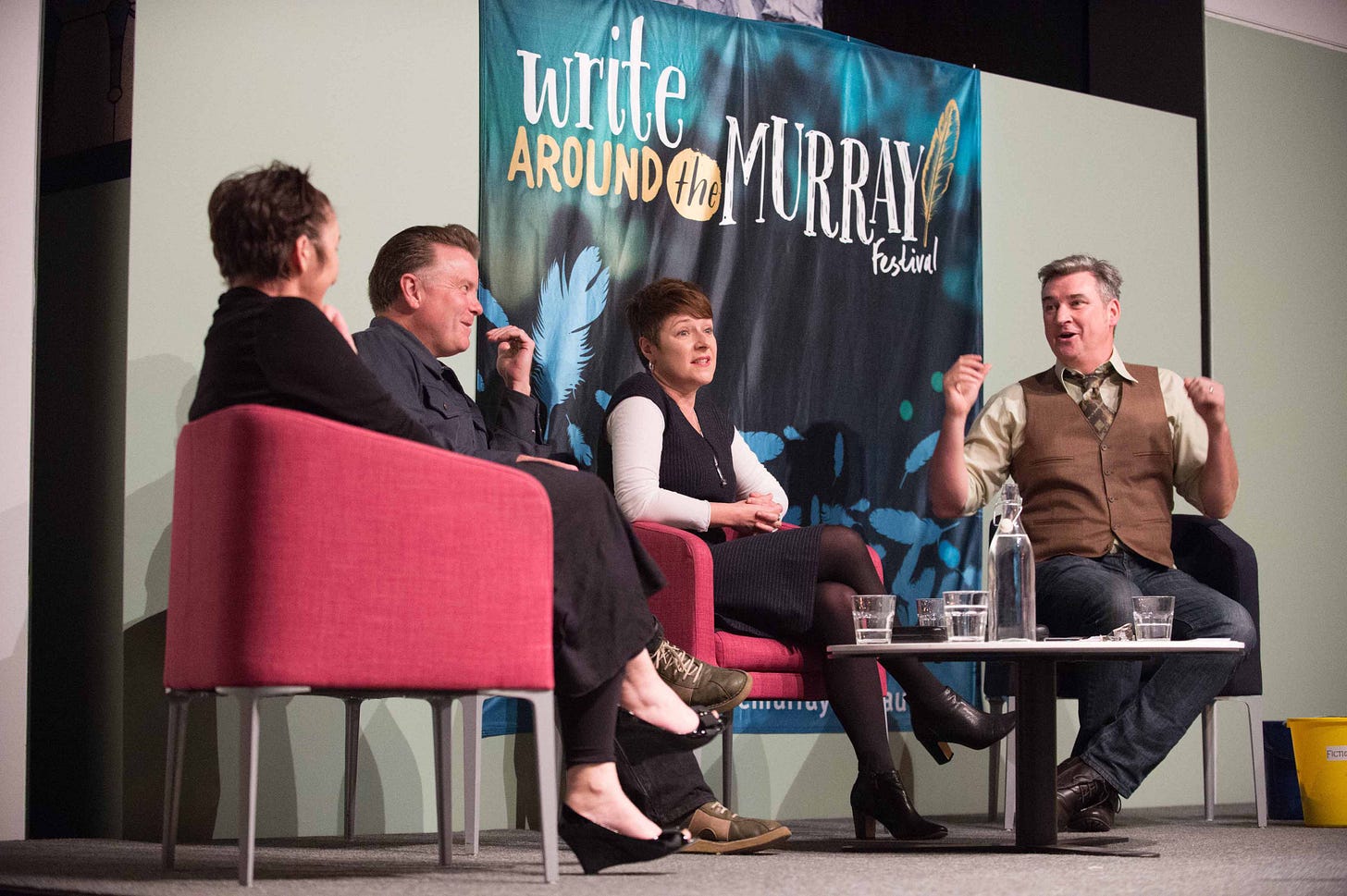When Anne Hutchison organised a group of girlfriends to sit around and discuss the weekly sermon with fellow ship passengers en route to the colony of Massachusetts in 1634, she’d have had no idea that her book club idea would become a social phenomena in the 21st century. Just how it took off from there is anyone’s guess: She didn’t even serve a charcuterie board.
It’s possible there were earlier book clubs, or even stone tablet clubs in Mesopotamia in the 3300 BC. However, as almost all of the earliest cuneiform inscriptions related to accounting, it’s unlikely the Ancient Meso’s got together once a month on the steps of the ziggurat to discuss depreciation & amortisation over a double hopped Sumerian beer.
In North America, book clubs sprang up in the 18th & 19th centuries in response to gender & racial oppression. Excluded by universities, colleges and formal intellectual gatherings, women began forming their own groups in their living rooms, at the back of bookshops or Ye Olde Starbucks, discussing books by candlelight. Enslaved African Americans were prohibited from reading, but there is evidence that from 1821, freed slaves created reading groups to make up for their restricted access to education. The current US administration are doing their best to recreate these pre-emancipation conditions, so we can expect to hear about clandestine reading groups bobbing up again soon.
The oldest continuous Book Club is The Women’s Reading Club, in Mattoon, Illinois. They first laid out a cheese platter in 1877 and are still rolling out a wheel of brie every second Tuesday of the month.
In recent times, the book club train has been adding carriages and this social locomotive is showing no sign of slowing down. However, as the numbers of clubs expands, the formats have also altered to match the specific needs & interests of the readers. For some, just sitting around talking about books is no longer enough. The advent of Walking Book Clubs, opened the CWA door to Knitting Book Clubs, who in turn dropped a stitch to Crafternoon Book Clubs.
So you don’t get shocked when the revolution comes to your social group, I’ve taken a deep dive to find some of the more eclectic book clubs loitering in the literasphere.
Freefall Book Club
Jenny Rutland lives in Caboolture, Queensland. She is single, skydives once a week on Sunday mornings, works from home as an aerospace software engineer and reads 365 books every year. No more, no less. Her obsessive personality makes connecting with people difficult, so when Indi, her local book shop owner asked her to join the Saturday Morning Book Club, she was taken aback. She immediately felt at home and to her surprise found that she was quite articulate in analysing and discussing the texts, and her opinion was not just valued, but sought. She was elated, and for 28 consecutive Saturdays, she never missed a single session until …
Due to staff shortages, Indi announced that she was having to change the book club sessions to Sunday mornings when the shop was closed. There was the odd grumble of dissent, but most of the group were fine with the change, but Jenny was mortified - Sunday morning was skydiving. She had skydived for the last 229 consecutive Sundays and couldn’t imagine breaking that pattern.
“Why don’t we skydive and talk about the books’, she blurted. There was silence at first. Then lots of sideways looks as they felt out whether Jenny was serious. What happened next surprised Jenny, as much as anyone else. She detailed a passionate love letter to the rush of skydiving and somehow convinced seven women from disparate walks of life, that combining that feeling, with the joy of literary analysis at 10,000 feet and falling, would be a rush like no other. They were all in.
After completing their nine compulsory tandem jumps as part of their Accelerated Freefall Course, the other women completed their maiden docking into freefall formation, to discuss Tania Blanchard’s ‘Letters from Berlin’.
The Caboolture Freefall Book Club meets every Sunday morning at the Caboolture Aero Club at 8am. New members with AFF accreditation and a Goodreads Membership are welcome.
Location Specific Book Club
In 2016, Professor Grace St Clair, a renowned materials chemist, suggested to her esteemed colleague Professor Silvia Datto, a leading expert in pathogen genomics that they should start a sip and giggle book club. They gathered a small coterie of like minded, female Cambridge academics, and decided to start with something close to home. The Grantchester novels, penned by James Runcie, are whodunnits based on a vicar cum detective cycling around the village looking for murderers in the 1950s. Set in Cambridge and the nearby village that bequeaths the series its name, Grace & Silvia decided it was the perfect soft launching pad for some non academic nattering over a chablis.
‘Sydney Chambers & the Forgiveness of Sins’ was selected from the series & Grace came up with the delicious idea of hosting the session in the very church where the guilt stricken stranger seeks sanctuary. Someone in the group knew someone who knew someone who’d had an extra curricular knee trembler in the vestry with the real vicar at St Michael’s & St Mary’s, so he was only too happy to hand over the keys in exchange for keeping schtum about his clandestine, vertical coitus.
The group were intoxicated, by both the experience and the free altar wine proffered by the Reverend Upright, to ensure the monastic silence of the group.
The night was such a success, they decided that henceforth, all book club meetings would be held in one of the key locations depicted in the book, or at least a close approximation.
Try as they might, they couldn’t get permission to meet in Anne Frank’s attic in Amsterdam, but they did find that the Truro Amateur Theatre company in Cornwall were staging the play and were given permission to meet on their set. The group decided to whisper in German, and eat only rationed food to add a layer of authenticity to the experience.
They were able to find a barn easily enough for ‘Animal Farm’, marooned themselves on Barry Island in Wales for ‘The Lord of the Flies’. and all crammed into a walk-in-robe in an IKEA store in Milton Keynes for ‘The Lion, The Witch & the Wardrobe’.
Professor Francine Fenwick, a theoretical physicist hosted the group in her home laboratory to discuss HG Wells, ‘The Time Machine’, and none of them have been seen or heard from since.
Stake Out Book Club
The brain child of Vancouver based private detective Nicole Pargiter, these boutique book club sessions are strictly limited to two participants. Tiring of long, boring nights, keeping a watchful eye on infidels, work insurance scammers & employees rorting their bosses, she decided she’d invite her friend Gina along for company. Early in the night, they both discovered that they had just read the crime thriller, ‘Tell Noboby’ by Patricia Gibney. They talked about nothing else all night long and the time flew.
Afterwards, Nicole analysed the night and why it had been so enjoyable. For her it came down to company and a way to pass the time. Gina on the other hand, not only enjoyed the uninterrupted, protracted literary discussion but was intoxicated by discussing crime fiction whilst participating in a real stake out. Realising she had found a niche and a way to avoid doing stake outs herself, she went all in and set up the Stake Out Book Club.
To participate, crime fiction fans simply register under detective aliases and when they finish a book, they log in and try to get a match. Once they are matched, the app gives them a stake out brief and the location of their stake out car. They are instructed to arrive at different times, never use their real names and as well as discussing their book, take detailed notes based on their stake out brief.
The app is now active in 246 cities around the world, with PI’s globally now using the service. Nicole has now sold the company and is working on her first novel, ‘I’ll Get the Donuts’
*Out of Print Book Club
Bridget Donnelly, an event organizer from Christchurch, had heard friends gushing about book clubs and thought they sounded like fun, but always balked at accepting invitations to join. She loved the idea of sitting around chatting about books over a few wines, but she simply didn't have the time in her busy schedule to commit to reading. She mentioned this to Nathaniel Orr, an old uni friend she had originally met in improv classes, and after a series of ‘Yes ands …’ they had the problem solved: They would start a book club, where the books don’t exist.
At each Out of Print Book Club session, members take it in turns to make up a title, write a jacket blurb & a brief author bio. The one page document is handed to the rest of the group on the night, who take a few moments to scan the contents, before embarking on a spirited critique of a work of literature that is fictional in more ways than one.
According to Bridget, despite the lack of an actual book, the discussions can become quite willing. Guillermo had to be held back from decking Koa after he’d suggested that the Gorge of Hum in ‘The Gash Lord Rises’, was not a geographical feature, but a metaphor for the protagonist’s tinnitus; Cindy & Gemma briefly broke up over differing views about the ending of ‘This Book Has No Ending’ and Therese left the group permanently when Sebastian accused her favourite author Tiff Giff of being an AI bot. The rest of the group sided with Sebastian: ‘Romantic Hands of Ointment Summer’, was almost certainly written by a bot.
However, the group is still going strong and other copycats have popped all over New Zealand. Their motto is ‘Books you can't put down … or even pick up.’
Other Book Clubs of Note
Ancillary Character Book Club - The discussion eschews the study of the key characters and instead fleshes out the potential back stories of the secondary and functional characters.
Jane Austen-ish Book Club - Adopting the attire and language of the Regency era, members discuss contemporary fiction, through the lens of the moral coda of early 19th century English society.
Survivor Book Club - Once a book is selected, the core character’s names are put into a hat and each of the 8 members choose a name. Each week they must argue their case to remain in the book and at the end of the session, they all vote to eliminate one character. At the beginning of the next session, they discuss the narrative implications of that character’s removal. Each character must then explain how that change affects their narrative and why they should stay in the story. This process is repeated until only one character remains. Somewhat disappointingly, the only prize for the winner, is selecting the next book.
*Note - The author staged ‘The Out of Print Book Club’ as a live show at the Adelaide Fringe, Melbourne International Comedy Festival & Write Across the Murray Literature Festival. Co-hosted by Tim Overton, each show featured 3 guest comedians & improvisors, discussing books, short stories, & plays. The titles, genres & formats were inspired by prompts from the audience & the hosts. You can read an Arts Hub Review here
(Poster for the Out of Print Book Club. 17 books & 3 plays that we created in this format have since been published by audience members.)
(The author discusses a non-existent bestseller with Fiona O’Loghlin, Rusty Berther & Andrea Powell)








This is gold Damian! And how inspiring is Jenny? What a wonderful bunch of women casually skydiving and trading verse at the same time. I wish I’d done nine tandem jumps before I free-fell. The cows scattering at breakneck speed, in a paddock miles away from the airport would agree!